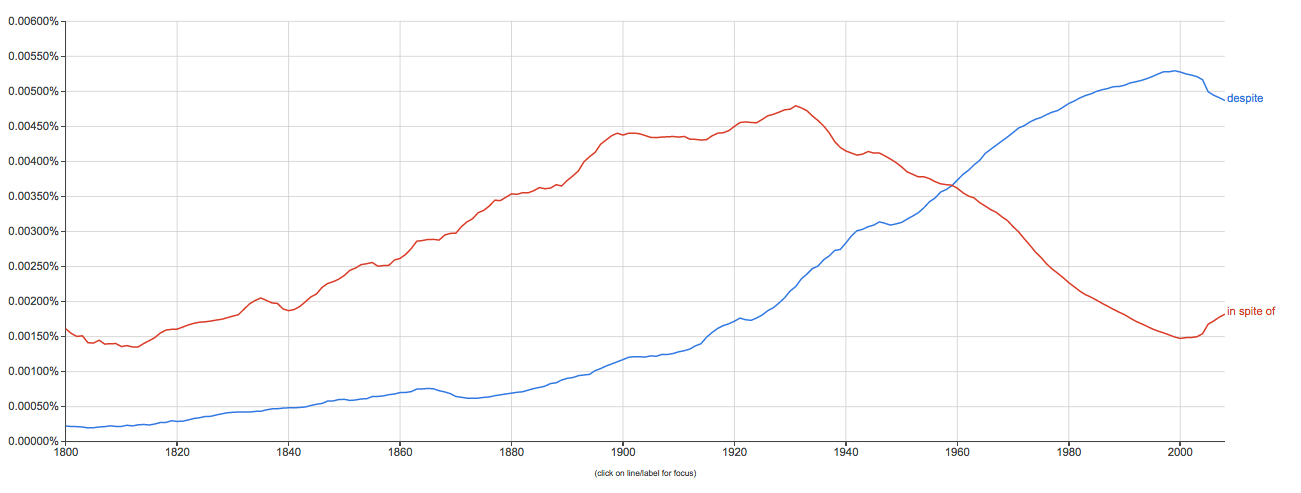Last week I attended an interesting talk on the role of corpora in language teaching and it reminded me a small-scale, corpus-based study I carried out in the late 90s as part of my coursework at Lancaster university. Here are some of the questions I sent out to investigate using the British National Corpus:
1. Which linking word is more commonly used to express contrast: however, although or on the other hand?
2. Which linking word is more common: despite or in spite of?
3. Despite + in spite of are followed by an ING verb (e.g.: despite not knowing) far more often than by a noun phrase (e.g.: despite his lack of money). True or false?
4. Is despite + the fact that a common collocation?
5. Both despite and in spite of “attract” mostly negative words (e.g.: despite the recession, the rain, the lack etc.). True or false?
Answers:
1. However, with sixty-one thousand occurrences, followed by although, with forty-three thousand. On the other hand, a textbook favorite, had as few as five thousand.
2. Based on the BNC’s 1998 data, despite is apparently five times more common than in spite of. It seems, however, that since the 2000s, there’s been a slight drop in the total number of despite occurrences. It would be interesting to carry out the same study using the British National Corpus and compare the results.

3. False. The overwhelming majority of occurrences (approximately 90%) contain noun-phrases. This is something textbook writers ought to take into account when tackling despite and in spite of.
4. Yes. Other collocates include: attempts, efforts, setback, lack of.
5. Probably true. Based on the BNC data, the semantic prosody of despite and in spite of seems to be predominantly negative.
It would be interesting to carry out the same study using (1) the BNC fifteen years later; (2) a corpus that was not predominantly based on written data.




Absolutely fantastic!
Best regards
LEARNING ENGLISH ONLINE
Thank you so much!
Luiz, how would one go about studying something like this in Brazil?
Hi there,
Great post! I really enjoyed reading the full article at Scribd. This is the kind of research paper that I like: queries that emerge from questioning what we are actually teaching.
Whenever I'm struggling with deciding what to teach in the little time we have available, I think of concordance studies. Anything along these lines you feel like sharing will be so very welcome.
Um abração,
Cris
Cris,
There's actually another study on prepositions, but I can't for the life of me locate it.
I'll keep looking.